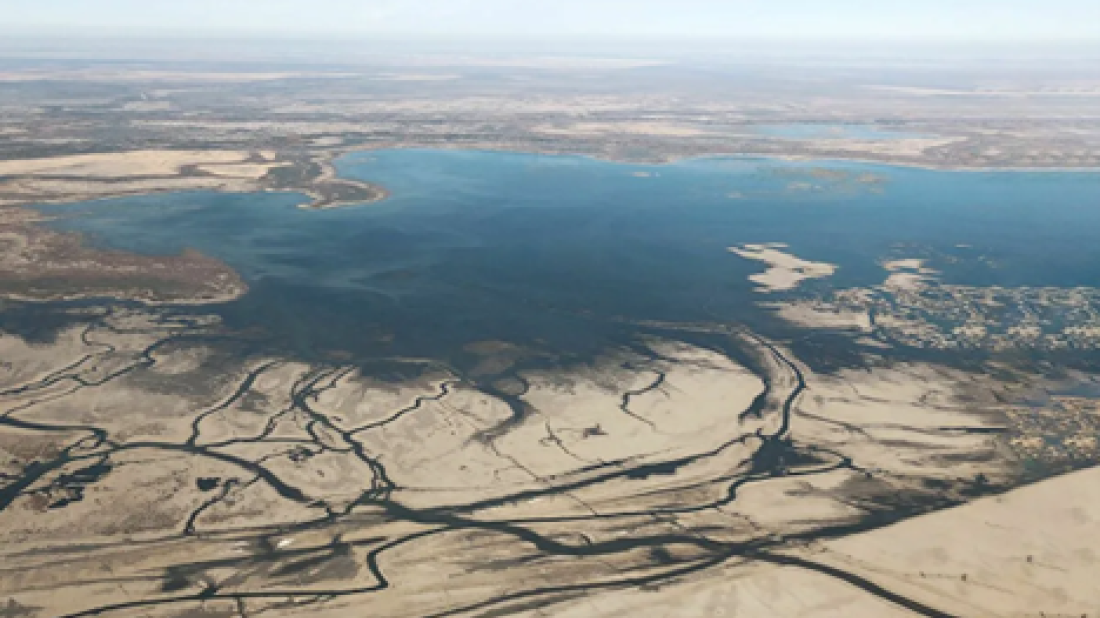live Israeli military says it has launched fresh strikes on Tehran and Beirut: All the latest news on the Iran strikes
The Israeli military has begun a new wave of strikes on Tehran, it said late on Monday. The strikes came after it issued...

The volume of water in the Northern Aral has reached 24.1 billion cubic metres, surpassing the 2025 target by a wide margin according to Kazakhstan’s Ministry of Water Resources and Irrigation, which announced that the sea is making a remarkable comeback, and doing so faster than anticipated.
Originally officials had aimed for 20.6 billion cubic metres by this year, with projections of reaching 24 billion only by 2029.
Since 2023, around 5 billion cubic metres of water has been diverted into the sea, primarily from the Syr Darya River, which remains the region’s main source of inflow.
According to Water Resources and Irrigation Minister Nurzhan Nurzhigitov, a feasibility study is currently under way to explore long-term stabilisation of the basin.
One of the proposals includes raising the Kokaral Dam by two metres, alongside the construction of a new hydraulic facility to manage water levels in the adjacent Akshatau and Kamystybas lake systems.
These plans are being discussed with local communities to ensure any interventions align with regional needs and environmental sustainability.
Officials say the project aims to increase both the volume and quality of water in the Northern Aral, support the restoration of the Syr Darya delta, reduce the spread of salt and toxic sediments from the exposed seabed, boost the local fishing economy in the Kyzylorda region, and improve living standards for nearby residents.
The Northern Aral also referred to as the Small Aral Sea began forming in 1987, as the original Aral Sea continued to recede due to excessive upstream irrigation during the Soviet era.
At its worst, the Aral lost more than 90% of its original volume, leaving behind a barren salt plain, dust storms carrying pollutants, and devastated local communities.
The turning point came in 2005, when Kazakhstan completed the Kokaral Dam, effectively separating the northern basin from the southern half, which had become almost entirely desiccated. The dam enabled the retention of seasonal inflows from the Syr Darya, triggering a gradual but tangible recovery.
In 2012, the Northern Aral and the Syr Darya delta were recognised as internationally significant wetlands under the Ramsar Convention, adding both visibility and urgency to conservation efforts. Since then, the area has become a key case study in landscape restoration and water governance.
While full rehabilitation of the Aral Sea as a whole remains unlikely say experts, the progress in the north offers rare proof that even large-scale environmental degradation can, at least in part, be reversed. With consistent scientific planning, community engagement, and government backing, Kazakhstan say it's turned what many viewed as a lost cause into a model of resilience and regeneration.
Follow the latest developments and global reaction after the U.S. and Israel launched “major combat operations” in Iran, prompting retaliation from Tehran.
Saudi Arabia’s state oil giant Saudi Aramco closed its Ras Tanura refinery on Monday following an Iranian drone strike, an industry source told Reuters as Tehran retaliated across the Gulf after a U.S.-Israeli attack on Iranian targets over the weekend.
The Kremlin is utilising the recent United States and Israeli military strikes on Iran to validate its ongoing war in Ukraine. Russian officials are pointing to the escalation in the Middle East as evidence that Western nations do not adhere to international rules.
The Middle East crisis intensifies after the deadly attack on the compound of the Supreme Leader of Iran Ali Khamenei on Saturday that killed him, other family members and senior figures. Iran has launched retaliatory strikes on U.S. targets in the region.
Ayatollah Alireza Arafi has moved into a pivotal constitutional role following the death of Supreme Leader Ayatollah Ali Khamenei, becoming the clerical member of Iran’s temporary leadership council under Article 111 of the Constitution of the Islamic Republic of Iran.
The Israeli military has begun a new wave of strikes on Tehran, it said late on Monday. The strikes came after it issued an evacuation warning for residents in Tehran, particularly those residing near state broadcaster IRIB's headquarters.
The U.S. and Israeli air war against Iran widened on Monday, with no end in sight as Israel attacked Lebanon in response to strikes by Hezbollah and Iran kept up its attacks on Gulf states that host U.S. military bases.
Iran and its proxies could target the U.S. with attacks in response to the Saturday killing of Iranian Supreme Leader Ali Khamenei by Israeli and U.S. strikes, according to a U.S. intelligence assessment reviewed by Reuters.
The U.S. embassy in Riyadh was hit by two drones resulting in a limited fire and some material damage, the kingdom's defence ministry said in a post on X on Tuesday, citing an initial assessment.
Israeli Prime Minister Benjamin Netanyahu said on Monday that the U.S. and Israel's war against Iran may take "some time" but it will not take years.
You can download the AnewZ application from Play Store and the App Store.

What is your opinion on this topic?
Leave the first comment